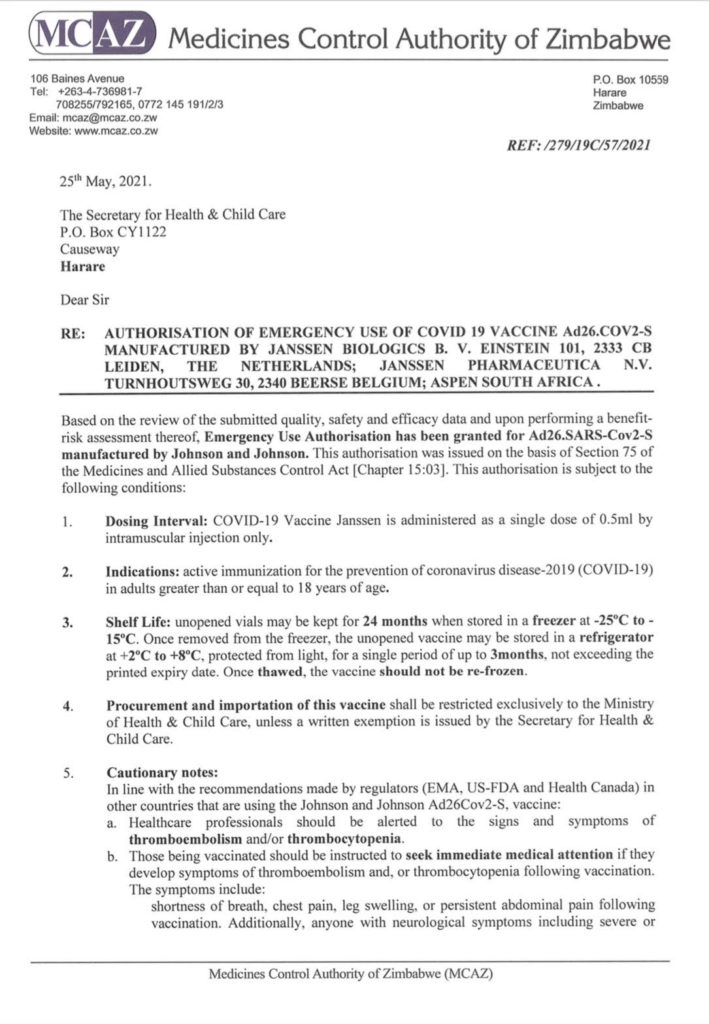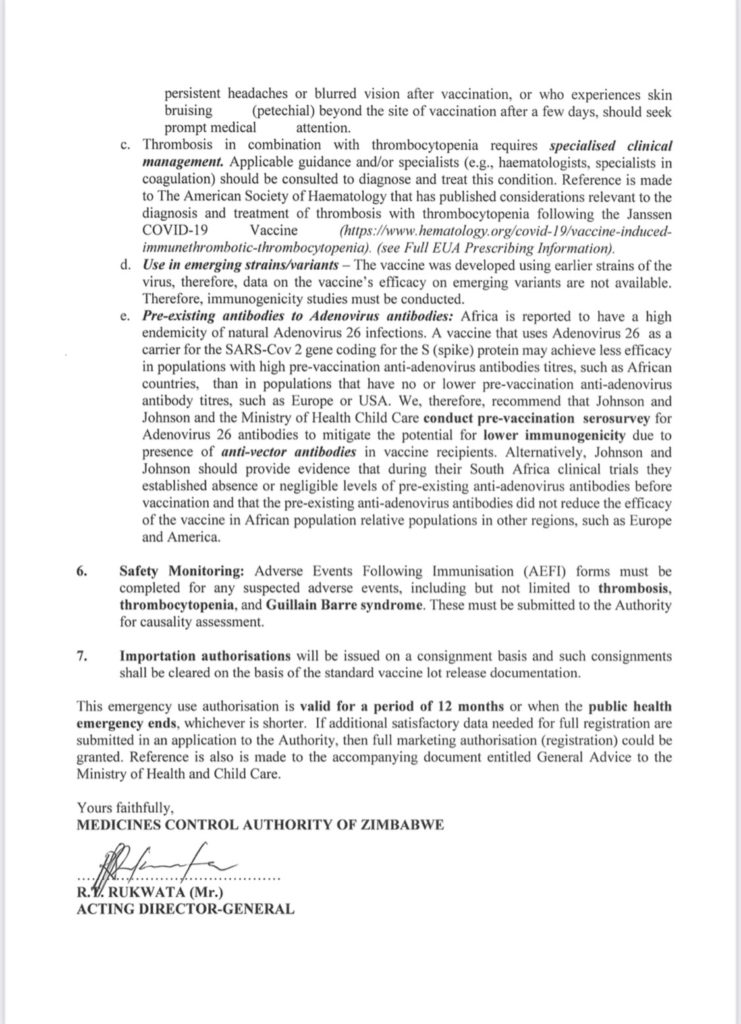Zimbabwe’s medicines regulator, the Medicine Control of Zimbabwe (MCAZ) has authorised the use of Johnson and Johnson Covid-19 vaccines in the country.
Once adopted by the Ministry of Health and Child Care, Johnson and Johnson, the first western manufactured drug, will become the fifth vaccine to receive emergency listing in Zimbabwe.
So far the country approved the use of Sinopharm and Sinovac made in China, Sputnik V from Russia and Covaxin manufactured in India.
In a letter to the permanent secretary in the Ministry of Health and Child Care, from MCAZ Acting Director-General Richard Tendayi Rukwata, said based on the review of the submitted quality, safety and efficacy data and “upon performing a benefit-risk assessment thereof Emergency Use Authorisation has been granted for Ad26.SARS-Cov2-S manufactured by Johnson and Johnson.”
“This authorisation was issued on the basis of Section 75 of the MCAZ Act (Chapter 15:03). This authorisation is subject to the following conditions Dosing Interval Covid-19 Vaccine Jansen is administered as a single dose of 0.5 ml by intramuscular injection only,” he said.
“Indication active immunisation of the prevention of coronavirus disease 2019 in adults greater than or equal to 18 years of age.”
However, Zimbabwe delayed receiving its allocation of Johnson and Johnson doses under the African Union facility for Covid-19 vaccines citing cod chain logistics and management of possible side effects.
Read: https://cite.org.zw/zim-not-ready-for-johnson-and-johnson-covid-19-vaccine/
As for shelf life, the MCAZ boss said unopened vials may be kept for 24 months when stored in a freezer at -25 degrees Celsius to -15 degrees Celsius.
“Once removed from the freezer, the unopened vaccines may be stored in a refrigerator at 2 to 8 degrees Celsius, protected from the light, for a single period of up to three months, not exceeding the printed expiry date. Once thawed, the vaccines should not be re-frozen,” said the medicines regulator director.
Procurement and importation of this vaccine, Rukwata said would be “restricted exclusively” to the health ministry unless a written exemption is issued by the permanent secretary in the same ministry.
Rukwata also issued cautionary notes that health care workers should be alerted to the signs and symptoms of thromboembolism and or thrombocytopenia.
“Those being vaccinated should be interested to seek immediate medical attention if they develop symptoms of thromboembolism and or thrombocytopenia following vaccination.
The symptoms include shortness of breath, chest pain, leg swelling or persistent abdominal following vaccination additionally anyone with neurological symptoms including severe persistent headaches or blurred vision after vaccination or who experiences skin bruising (petechial) beyond the site of vaccination after a few days, should seek prompt medical attention,” he said.
The MCAZ boss also noted the Johnson and Johnson vaccine was developed using earlier strains of the virus therefore data on the vaccine’s efficacy on emerging variants are not available.
“Therefore immunogenicity studies must be conducted,” Rukwata pointed out.
Rukwata added that this emergency use authorisation is valid for a period of 12 months or when the public health emergency ends, whichever is shorter.
“If additional satisfactory data needed for full registration are submitted in an application to the authority, then full marketing authorisation (registration) could be granted. Reference is also made to the accompanying document entitled General Advice to the Ministry of Health and Child Care,” he said.



